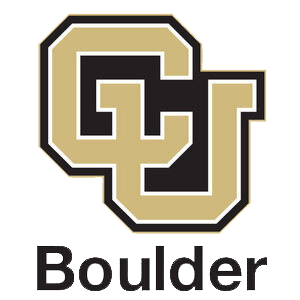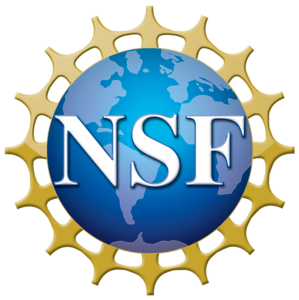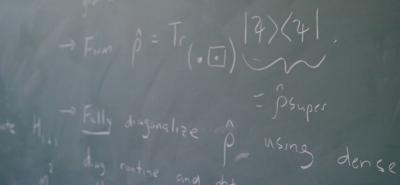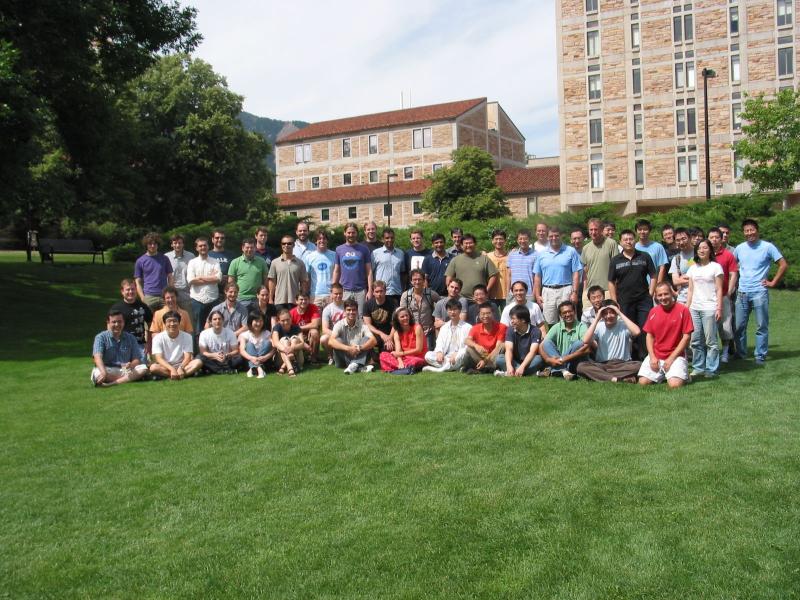July 6 - July 30, 2010
|
|
Scientific CoordinatorsMatt Hastings, Microsoft Station Q Site CoordinatorLeo Radzihovsky, University of Colorado |
The 2010 summer school will cover a broad range of modern numerical approaches to strongly correlated quantum many-body systems and materials. This will also include novel ideas coming from the quantum information community, in particular various approaches based on tensor network states and entanglement renormalization methods. These method-oriented presentations will be complemented by a substantial number of phenomenological and application oriented lectures.
Group Photo
Public Lectures
Chaos, Quantum Mechanics and Computers
Wednesday, July 14th, 7pm
Superconductors and Magnets: Strange bedfellows of the quantum world
Tuesday, July 27th, 7pm
Expected lecturers and seminar speakers
| Bryan Clark, Princeton Adrian Feiguin, Wyoming Matthew Fisher, Caltech Matt Hastings, Station Q David Huse, Princeton Andreas Läuchli, MPI Dresden Patrick Lee, MIT Roger Melko, Waterloo Andrew Millis, Columbia Ashwin Nayak, Waterloo Gil Refael, Caltech |
Ulrich Schollwöck, Munich Thomas Schulthess, Oak Ridge Barbara Terhal, IBM Watson Simon Trebst, Station Q Nandini Trivedi, Ohio State Matthias Troyer, ETH Zurich Frank Verstraete, Vienna Ashvin Vishwanath, UC Berkeley Philipp Werner, ETH Zurich Steven White, UC Irvine |
Topics
The method-oriented lectures will give pedagogical introductions to a variety of numerical approaches including classical Monte Carlo and various flavors of quantum Monte Carlo, exact diagonalization, the density matrix renormalization group, series expansions, dynamical mean-field theory, and quantum impurity solvers. These lectures will be complemented by an introduction to high-performance computing and parallel programming as well as hands-on tutorials of open-source numerical codes.
On the quantum information side lecturers will cover tensor network states, entanglement renormalization approaches, and an introduction to computational complexity theory and its classification of computational problems encountered in many-body systems.
The phenomenological lectures will feature a broad mix of topics including (dis)ordered boson systems, frustrated magnetism, spin liquids and exotic phases, cold atoms, and strongly correlated fermion systems.






